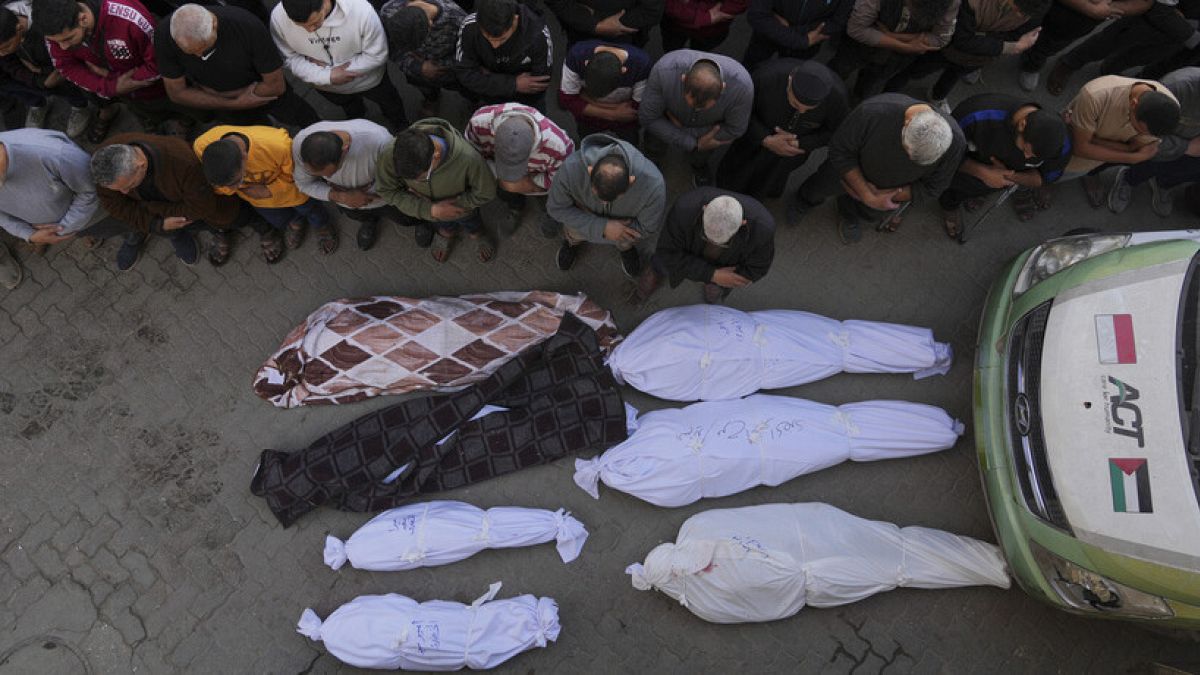By Martin Hoegger*
At the opening of the Focolare Movement’s congress (Castel Gandolfo, Rome, 26 March 2025), a question was raised: why should we still be concerned about Christian unity today? Aren’t there other priorities? A range of answers was given: unity is more essential than ever![1]
“If we are here, it is because we want to bear witness to our unity and the certainty of our hope in Christ,” says Margaret Karram, the president of the Focolari. “Unity is rooted in the resurrection of Christ. May we be able to bear witness to this to all those we meet,” is the driving force of her life.
Sandra Ferreira, co-director of the Centre for unity, compares ecumenism to the ‘path of Abraham’. Like him, we have to leave our concerns behind in order to take another path and build unity among us.
“We want to learn from the spiritual riches of others. ‘Ephphatha’ – ‘be opened’, said Jesus to a deaf-mute! That is what he wants from us: that we open ourselves to him and to each other. How? By raising the thermometer of mutual love!”
Enno Dijkema points out that 2025 has three jubilees: the Catholic Jubilee of Hope and those of 1700 years since the Council of Nicaea and 60 years since the lifting of excommunications between the Catholic Church and the Orthodox Church.
The Nicene Creed is recognised by almost all the Churches and is the focus of an ecumenical prayer at the Basilica of St Paul-Outside-the-Walls. The theme of hope inspired this congress. Ecumenism is a pilgrimage of hope and Christ wants unity, because he prayed for it.
From a cellar to the whole world!
For the Focolari, ecumenical dialogue is a practice of all the people of God. Chiara Lubich, its founder, called it the ‘dialogue of life’. A dialogue involving the grassroots of the Church and that of a people already united (but not yet fully). A dialogue that does not exclude other dialogues (such as theological dialogue), but supports and energises them.
In the town of Trent, during the Second World War, in a cellar where she had taken refuge with her companions during the bombings, she read the ‘Testament of Jesus’ on unity in chapter 17 of the Gospel of John. She felt that this text would become the ‘charter’ of this movement. She and her first companions then responded to this call. From that moment on, a fire spread from that cellar to the whole world. All the Churches were touched by this new “charism of unity”.
“The Gospel is our only rule. We wanted to obey Christ first, without a pre-established programme”, she said in a video. “Every Church has something to give: it is a gift for others. And we want to love each other’s church as our own”.
The United Church: a rose window illuminated by the light of Christ
According to Callan Slipper, an Anglican theologian, for Jesus, relationships come before everything else: “It is mercy that I want, not sacrifice” (Matthew 9:13; Hosea 6:6)”. Our worship is secondary to the way we behave towards one another. Above all, we must be reconciled, before all else, even before prayer (Matthew 5:23-24). This means that our relationships are the place where we meet God. This is the meaning of Jesus’ prayer in John 17.
His presence takes various forms, but the most important is his presence among us through our relationships. “Ecumenism, by repairing relationships, allows the Church to be itself. It is a great rose window, but our divisions have shattered it into a thousand pieces. Each piece is beautiful in itself, but together they lack the splendour of the whole. We need the beauty of this rose window, through which the light of Christ, the light of the world, radiates,” he says.
Moving from union to unity
For the theologian and philosopher Jesus Moran, we have to move from union to unity. Union is not enough, because the parts remain juxtaposed. They do not change and do not open up to the outside world. In unity, on the other hand, there is interconnection. The general interest comes first. The growth of the other coincides with our own growth. Unity is a Trinitarian relationship in which people interpenetrate. Unity is the grace that we must ask for.
For him, it is also important to understand Christianity as a way of being, not as a religion. It is a radical conformity with Christ who came to bring a new way of inhabiting the world, not primarily a doctrine: “if anyone is in Christ, he is a new creation” (2 Corinthians 5:17).
Like C. Slipper, he emphasises the importance of relationships: “Through Christ, access to God is both human and divine. Who am I? My identity is first and foremost that of a Christian, following Christ. His fundamental message is his new commandment to “love one another as he has loved us”. Relationships are therefore fundamental”.
*Martin Hoegger is a Swiss reformed theologian and writer
[1] This congress brought together 250 participants from 40 countries and 20 different churches. Among them were twelve bishops from various churches. In addition, the streaming is broadcast in 20 countries. https://www.focolare.org/en/called-to-hope-key-players-of-dialogue/

 By The European Times | Created at 2025-04-01 08:21:33 | Updated at 2025-04-03 23:38:43
2 days ago
By The European Times | Created at 2025-04-01 08:21:33 | Updated at 2025-04-03 23:38:43
2 days ago








